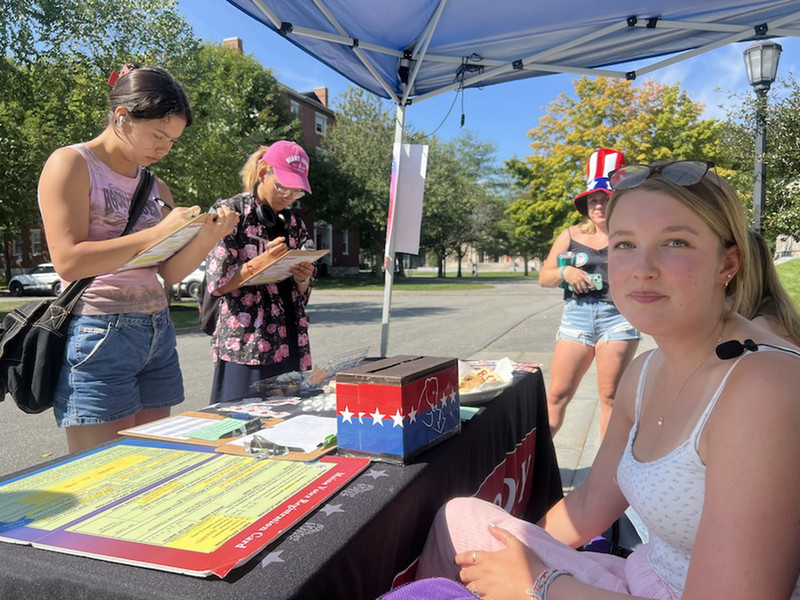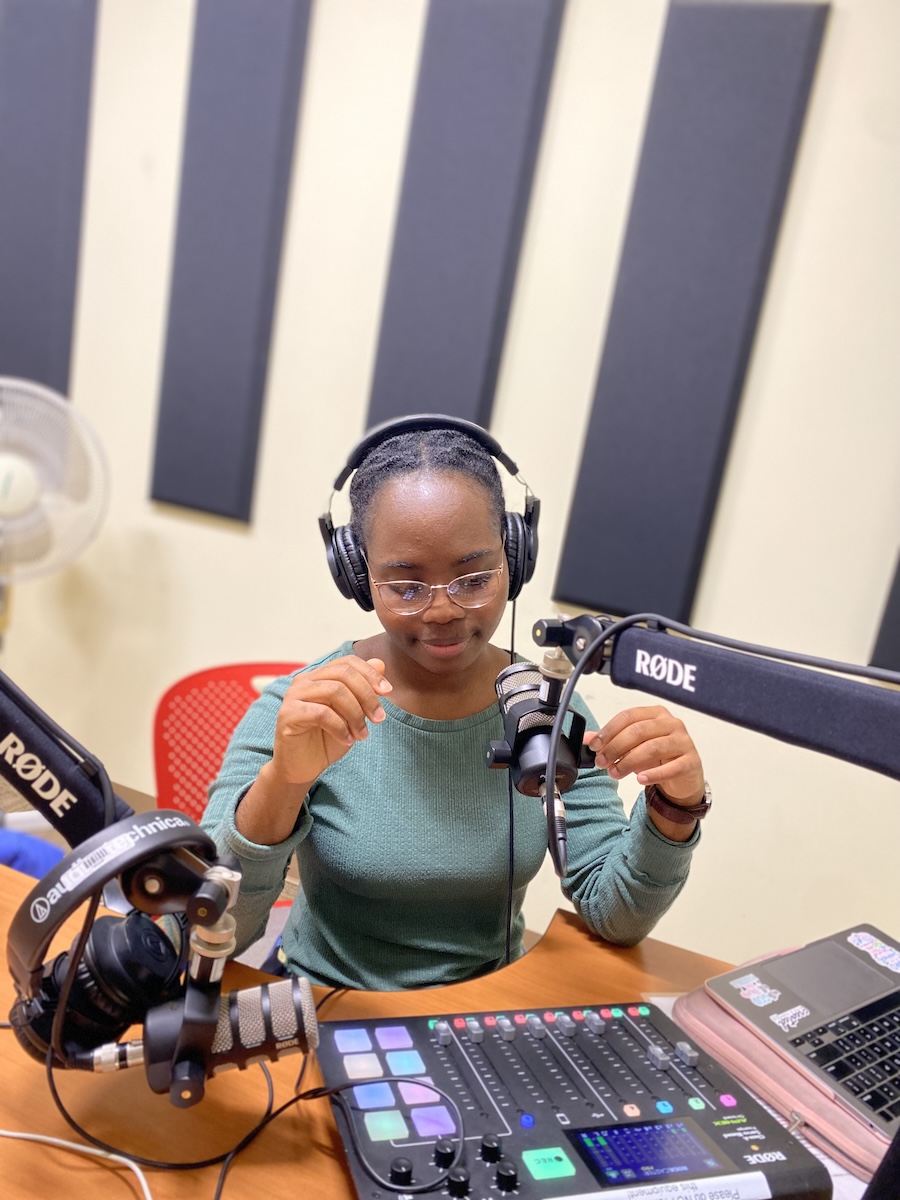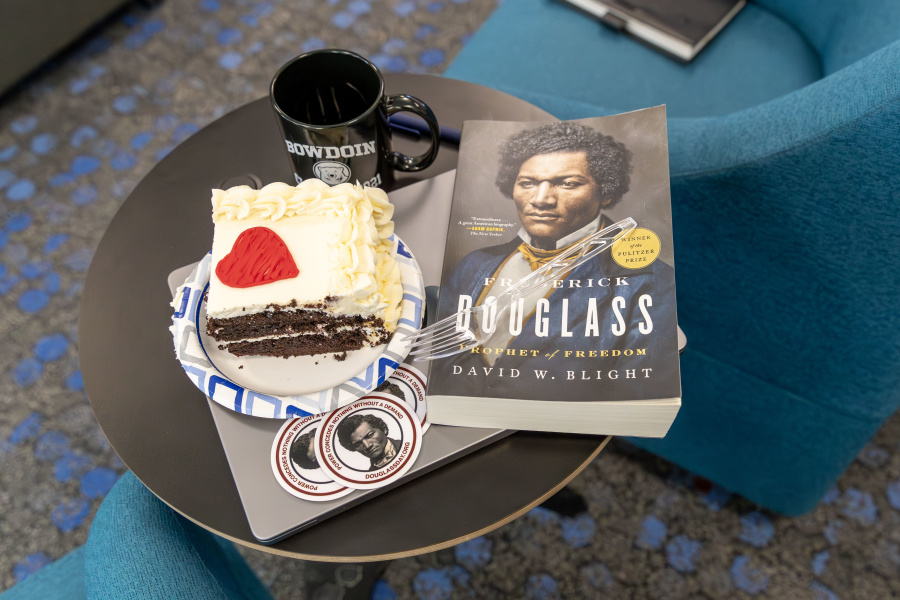ASB Students Reflect on Visits to Philly, Guatemala, Atlanta, S.F., ME., New Orleans
By Rebecca GoldfineAlmost three weeks after returning from their Alternative Spring Break trips, student participants on all six trips came together recently to tell one another stories about their experiences and to share their reflections.
This annual McKeen Center event, called Perspectives, purposefully takes places some time after the students have returned from their community-immersion trips. The lapsed time gives them a chance to dwell on and analyze their time off campus.
Alternative Spring Break is a McKeen Center program for students who want to do something productive and enlightening during their March vacation. During the first week of break, the accepted students join a small group of peers and head off to a city (or country) to learn about a specific social issue or a marginalized community. The trips are all designed, organized, and led by two student leaders, who pitch their ideas to the McKeen Center a year before and then prepare for their trip months in advance.
Click through the posters to read about the trips






This year Perspectives took place on April 6. The ASB participants split up in three locations on campus to chat with students of other trips.
Andrew Lardie, the McKeen Center’s associate director for service and leadership, encouraged the event’s attendees at the Cram Alumni Barn location to think about how they might disseminate their stories, and the ways Bowdoin students could become effective allies to the communities they had gotten to know. He also asked the students to think about how they could “pursue active citizenship” and live in congruence with both their morals and their self-interest.
Many of the students carried on animated conversations at their tables, glad, a few said, to have the chance to hear about other people’s trips. A few stood up to share their thoughts with the larger group.
Both Praise Hall ’20 and Jhada King ’20, who were on the Philadelphia trip, described what they called their “night walks,” when they traipsed through the city, passing out hot coffee and new socks and underwear to homeless people. Hall said the biggest lesson she learned from these walks and her trip was “the power of the human connection. …Some people hadn’t heard their name in a long time, and it was nice to connect with them on that level.”
When it was freezing cold on one of these night walks, the students told the people they met about warm places where they could seek shelter. King said she offered to get something to eat for one man who seemed disoriented and unable to react to the dangerously low temperatures. “His face lit up, and we bought him a slice of pizza and a Big Gulp,” she said.
The importance of taking time to recognize another’s humanity came up several times during the evening. Joy Huang ’19, who traveled to San Francisco, expressed her surprise about the dynamics she observed in Haight-Ashbury, when she saw shops close up around 8 p.m., and the streets empty of tourists. “That is when the homeless people come out,” she said. “Both tourists and locals isolate themselves from seeing these issues we were working with, and ignore the crisis playing out in their city. People can purposefully turn a blind eye to others.”
Ryan Ali-Shaw ’19, also of the Philadelphia trip, said he believes it’s important we do not forget that people on the streets have “dreams and ambitions, just like us.” He said he had grown up with instructions to roll up his window if his family car pulled up next to a panhandler. “I wonder how that impacts a person,” he said, when you indicate “that they’re not even worth looking at.” Even when we don’t want to give money to a beggar, he urged people to acknowledge them. “You can say, ‘I can’t give you money, but I hope you’re okay.’ It might be the only interaction they have with another human that day.”
San Francisco trip leader Hassaan Mizra ’17 summed up the recurring theme. “We spend a year doing this, and then we say, ‘Homeless people are people!’ We are finally figuring out that people who look like us are people!” He urged the students to stay engaged locally, even in Brunswick, where there are also people living outside, struggling to get by.



